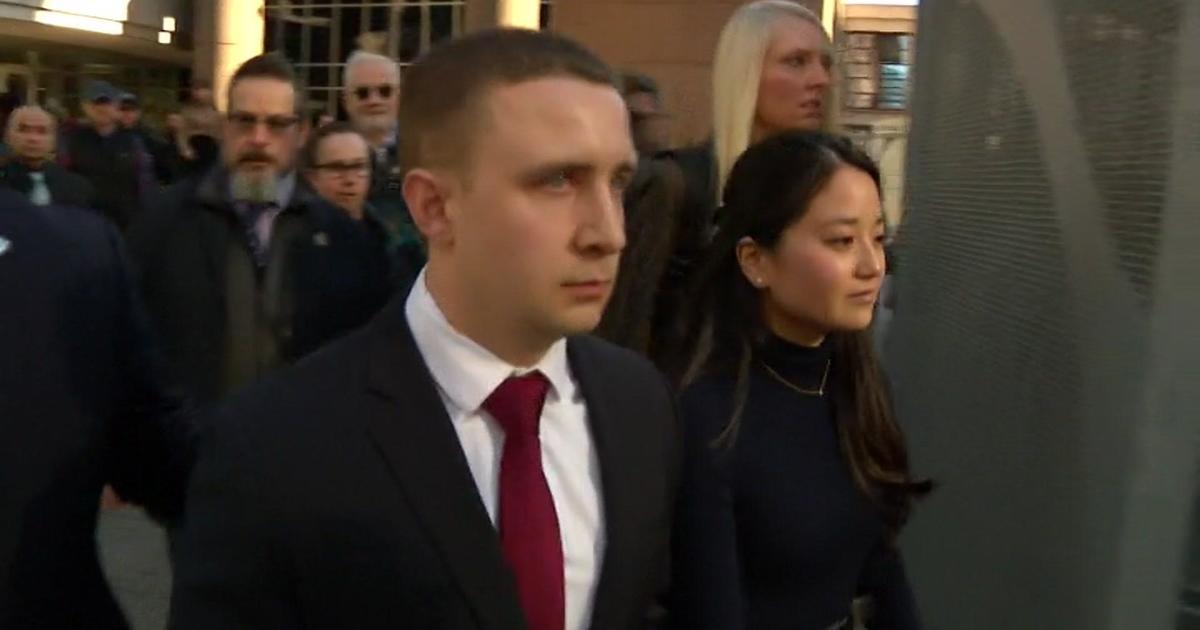Derek Chauvin Trial, April 15: Chauvin Says He Won't Testify, Both Sides Rest Their Case
MINNEAPOLIS (WCCO) -- Closing arguments are set for Monday in the Derek Chauvin trial after a dramatic final day of testimony.
Proceedings began Thursday morning with Chauvin telling the judge that he will not testify in his trial.
"I will invoke my Fifth Amendment privilege today," Chauvin said.
WCCO's Esme Murphy says it's clear Chauvin and his attorney had been discussing about him possibly testifying up until Thursday, as the defense had no other witnesses to call.
Following that, the state addressed new evidence in the case concerning carbon monoxide testing in light of Dr. David Fowler testimony regarding the issue. Fowler said CO poisoning could have contributed to the death, but as far as he could tell there wasn't testing of CO levels.
The state wished to present the evidence in its rebuttal. It turns out, there was testing of the CO levels, but it was buried in the medical examiner's autopsy report.
"We have blood gas evidence from Hennepin County that would contain blood gas readings for the carbon monoxide content in Mr. Floyd's blood on May 25, 2020," Prosecutor Jerry Blackwell said.
Judge Peter Cahill barred the evidence from being presented in the trial. Cahill said the state could talk with Dr. Martin Tobin, the state's sole rebuttal witness, about environmental factors for carbon monoxide poisoning, but could not discuss lab testing on the matter, or there will be a mistrial. Cahill agreed with the defense that the state had ample time to bring up the evidence.
"If he even hints that there are test results that the jury has not heard about, it's going to be a mistrial, pure and simple. This late disclosure is not the way we should be operating here," Cahill said.
The defense then rested its case and the state began its rebuttal with Tobin.
Blackwell began by bringing up the issue of George Floyd's potential exposure to carbon monoxide. Tobin said he disagreed with Dr. David Fowler's testimony the day prior that Floyd's carboxyhemoglobin levels could have been from 10% to 18%. Tobin explained carboxyhemoglobin as when carbon monoxide attaches to hemoglobin in the blood, displacing oxygen.
According to Tobin, Floyd's blood oxygen saturation was normal: 98% blood oxygen saturation with 2% of everything else, including carbon monoxide.
Notably, the court took a brief sidebar when Tobin briefly mentioned the blood gas testing obtained by Hennepin County.
After brief follow-up questions from the defense, however, Tobin was excused and the state rested its case. Cahill then dismissed the jury, but not before instructing jurors to "pack a bag" for the closing arguments Monday and subsequent deliberation.
The attorneys on both sides met with the judge Thursday afternoon, going over jury instructions.
The jury will hear those instructions and closing arguments on Monday and they will begin their deliberations as early as Monday afternoon.
WCCO-TV will be streaming the trial live on CBSN Minnesota. Jason DeRusha will lead the coverage, and legal expert Joe Tamburino will provide legal analysis.
Thursday's events came after the defense's expert witness, Fowler, was on the stand all day Wednesday. He answered a long list of questions from both sides because his take on George Floyd's cause of death contradicts that of the state.
Fowler is the now-retired medical examiner for the state of Maryland hired by the defense to give his expert opinion. In his thorough review, Fowler decided George Floyd's cause of death was undetermined.
Fowler said many factors contributed to his death, as opposed to the state's experts' opinions, which said even a healthy person could've died under the restraint Chauvin used on Floyd. The defense tried to blur those lines.
The forensic pathologist said the factors contributing to death included Floyd's drug use and his underlying heart conditions.
"They were significant or they contributed to Mr. Floyd having a sudden cardiac arrest in my opinion. That's how I would read it," Fowler said.
Another contributing factor Fowler cited was one not mentioned in court before — carbon monoxide poisoning from the exhaust of the police squad car. Fowler testified that Floyd had to have suffered from carbon monoxide poisoning because his head was so close to the squad's exhaust.
To that, defense attorney Eric Nelson asked: "You are not suggesting to the jury that Mr. Floyd died of carbon monoxide poisoning?"
"Not exclusively, no," Fowler said.
"Was Mr. Floyd's blood tested for carbon monoxide?" Nelson asked.
"I could not find a reference to it," Fowler said.
Fowler said because of his heart conditions Floyd was vulnerable to even a small amount of carbon monoxide.
Nelson also asked if he saw Chauvin's knee obstructing Floyd's carotid artery.
"He did not and even if it had obstructed one, the artery on the other side and others would supply blood for brain to function," Fowler said.
The cause of death testimony seemed to captivate jurors. A pool report note said eight jurors took notes as Fowler repeatedly dismissed the significance of Chauvin's knee on Floyd's neck.
State prosecutor Jerry Blackwell challenged Fowler on the amount of time Chauvin spent pressing Floyd with his knee and on the amount of drugs in his system, particularly the lack of pill residue in his stomach.
The prosecution also got Fowler to say Floyd deserved care.
"Do you feel that Mr. Floyd should have been given immediate emergency attention to reverse the cardiac arrest?" Blackwell asked.
"As a physician I would agree," Fowler said.
But the defense pushed back, clearly hoping Fowler's most important conclusion could lead at least one juror to find reasonable doubt.
"How would you classify the manner of death?" Nelson said.
"So this is one of the cases where you have so many conflicting different manners," Fowler said. "I would fall back to undetermined in this particular case."



